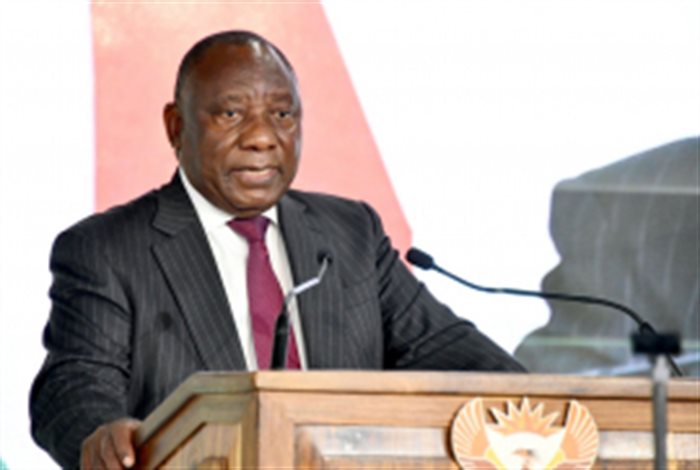
Top stories




ESG & Sustainability#BudgetSpeech2026: SRD grant unchanged, other Sassa social grants see hike
3 hours


More news








ESG & Sustainability
South Africa’s carbon tax should stay: climate scientists explain why













While there is significant progress in some areas, the first citizen acknowledged that South Africa has not fundamentally transformed patterns of ownership, control and benefit in the economy. “The empowerment of women is, therefore, an integral part of our effort to achieve inclusive growth, create jobs and expand economic opportunities for all,” he said on Wednesday.
He reminded guests that the national government has allocated R21bn to implement the National Strategic Plan over the next few years which is dedicated to economic empowerment programmes.
“Every government department, public institution and private company can and should implement mechanisms to fast-track preferential procurement for women-owned enterprises,” Ramaphosa said.
“Business, as the key driver of economic growth and employment, needs to step forward,” he said, adding that business needs to intentionally use industry value and supply chains as key tools for economic transformation. “Through value chain transformation, we can promote the development of small, medium and micro enterprises (SMMEs) owned by women, youth and black people,” Ramaphosa added.
By allowing them to produce value-added goods and services, the president said companies enable SMMEs to attract investment and employ more people. He highlighted six targets that are needed to advance through these commitments and plans.
These include increasing the number of women-owned enterprises within the sector, establishing an ecosystem of support for female business owners and employment of women and youth with set targets.
“If effectively implemented by all stakeholders, our actions will benefit not only the women of this country but the whole economy through employment creation, increased production capacity and accelerated economic growth.”
The president said he would also like to see more women entrepreneurs trained in compliance and registration, procurement and regulatory framework, financial literacy, marketing and access to markets as well as finance and growth opportunities.
President Ramaphosa lamented the underrepresentation of women in almost every part of the economy and as owners in key industries like steel, energy, mining and agriculture. Meanwhile, women continue to bear the brunt of an unemployment rate, which is nearly 37%, compared to 32% among men.
In addition, the President said, women’s median monthly earnings were 76% of those of men in 2018. He believed that these disparities not only lead to an imbalanced economy but also contribute to gender inequality in society. The president told delegates that 42% of children live only with their mother compared to 4% who live only with their father.
“By improving the economic circumstances of women, we are reducing their vulnerability to abuse and violence. By being less economically dependent on male partners, women have a better chance of leaving an abusive relationship,” he stressed.
SAnews.gov.za is a South African government news service, published by the Government Communication and Information System (GCIS). SAnews.gov.za (formerly BuaNews) was established to provide quick and easy access to articles and feature stories aimed at keeping the public informed about the implementation of government mandates.
Go to: http://www.sanews.gov.za